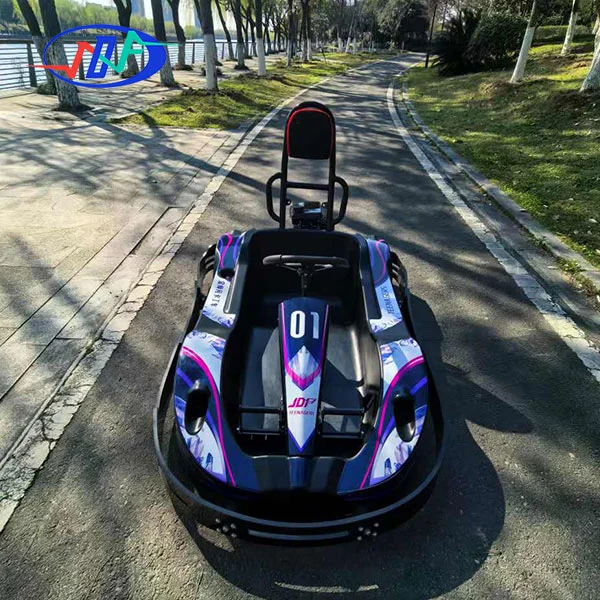How Do Electric Go-Karts Work? A Peek Under the Hood of Eco-Friendly Speed
2025-04-09
Electric go-karts are redefining the world of kart racing. Sleek, quiet, and packed with instant torque, these high-powered machines are becoming the go-to choice for indoor tracks, amusement parks, and even serious karting competitions. But how exactly do they work? What powers them, how do they accelerate so fast, and what makes them different from their gas-powered cousins?
Let’s pop the virtual hood and break it down.
⚡ The Electric Powertrain: No Fuel, No Fumes
At the heart of an electric go-kart is a battery-powered electric motor. Instead of using a gasoline engine, electric go-karts rely on electricity stored in rechargeable lithium-ion or lead-acid batteries.

Here's a quick breakdown of the key components:
1. Battery Pack
This is the kart’s fuel tank — storing energy for the electric motor. Modern karts often use lithium-ion batteries for their long life and fast charging.
2. Electric Motor
The motor converts electrical energy into mechanical motion. When the driver presses the accelerator, the motor spins the wheels almost instantly — providing quick, smooth, and silent acceleration.
3. Motor Controller (ECU)
This acts as the brain, regulating how much power goes from the battery to the motor. It translates throttle input into speed and can also apply regenerative braking.
4. Throttle Pedal
Pressing the throttle sends a signal to the controller, which adjusts the motor’s output accordingly.
5. Drive System
Most electric karts use a chain drive or belt drive to transfer motor power to the rear axle.
Other Smart Features in Electric Go-Karts
- Regenerative Braking: Some models recover energy when slowing down, sending it back to the battery.
- Speed Limiting: Electric karts can be remotely adjusted for top speed — great for beginners or kids.
- Reverse Function: A simple switch lets the kart go backward, something not usually available in gas karts.
- No Clutch or Gearbox: One-speed simplicity means easier control, especially for new drivers.
Why Electric Go-Karts Are Gaining Popularity
- 🔇 Whisper-Quiet Operation – Perfect for indoor tracks and noise-sensitive areas
- 🌱 Eco-Friendly – No tailpipe emissions, no fuel spills, and a smaller carbon footprint
- ⚡ Instant Torque – Electric motors deliver power right away, making karts fast off the line
- 🔧 Lower Maintenance – No oil changes, spark plugs, or carburetors to worry about
How Long Can You Race?
A fully charged battery typically lasts:
- 🕒 20–60 minutes of runtime depending on the model, track layout, and driver behavior
- 🔌 Recharge time ranges from 1–4 hours, and many commercial tracks keep backup batteries on hand for quick swaps
Electric Go-Karts: The Future of Racing Fun
Whether you're a weekend thrill-seeker or a motorsport newbie, electric go-karts deliver fun with a futuristic twist. They’re cleaner, quieter, and often quicker off the line than their gas-powered counterparts. Plus, with customizable power settings and minimal upkeep, they’re ideal for both competitive racing and family entertainment.
So next time you’re zipping around a track, just know — there’s a whole lot of smart tech powering that silent speed machine beneath your seat.


